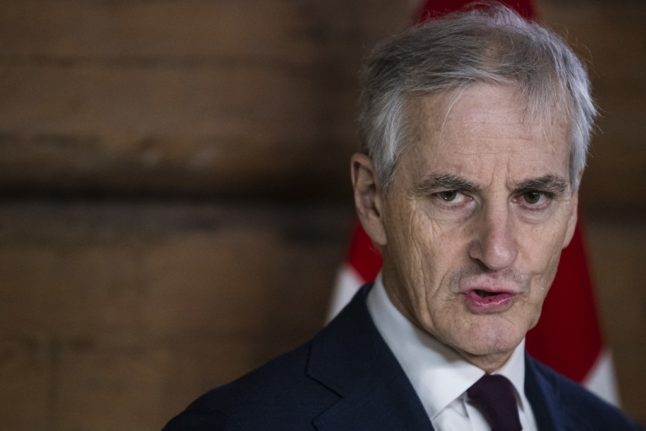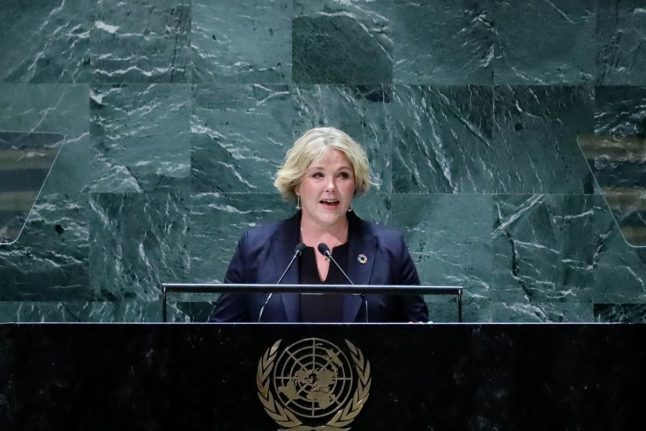Last year the Norwegian government opted to change the voting rules on the Arctic archipelago of Svalbard, which lies roughly halfway between the Norwegian mainland and the North Pole.
Jonas Gahr Støre was on his first official visit to the region as PM and walked past those protesting a change to voting rules on his way to a meeting with the local arm of the Labour Party.
“Many of us have lived here for many years. The right to vote, the most fundamental right you have in a society, has been taken away from us,” Sally Hovelsø, a Dane living in Svalbard who protested as Støre walked by, told Norwegian newswire NTB.
Støre said that changing the voting rules was a difficult decision for the government.
“And this was not an easy decision. We listened to the counterarguments. But we have responsibility for safety and stability at a time when it is particularly necessary,” he told NTB.
Under the new rules, foreign residents wishing to vote on local government matters will need to spend three years on the Norwegian mainland to hit the ballot box. Under previous regulations, international residents must have lived in the Svalbard region for three years.
This move barred a large proportion of Svalbard’s population from being able to vote. Some 30 percent of residents of Svalbard were born abroad. Unlike the mainland, foreigners are able to work in Svalbard visa-free. The move to new voting rules meant that Svalbard lost over a quarter of its total voting base.
Arlid Olsen, leader of the elected local council in Longyearbyen, the largest settlement in the region, said that she understood the frustration felt by those who have lost their right to vote.
“They experience both that they are not part of democracy, but also not the wishes of the Norwegian state here in Longyearbyen. It is clear that it is serious for the local community, but also very serious for the individual,” he said.
He added the local council itself was split on the government’s decision to implement new voting rules on the island.
READ MORE: NATO’s ‘Arctic Achilles heel’ in Norway eyed up by China and Russia



 Please whitelist us to continue reading.
Please whitelist us to continue reading.
Member comments